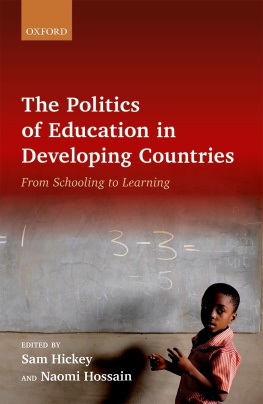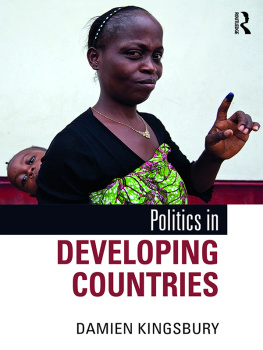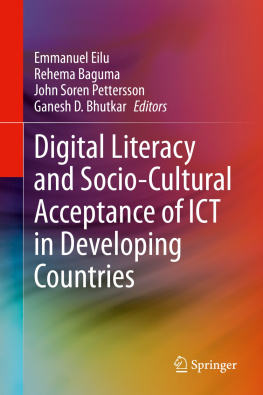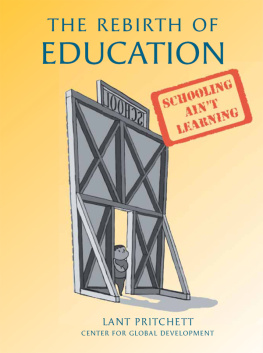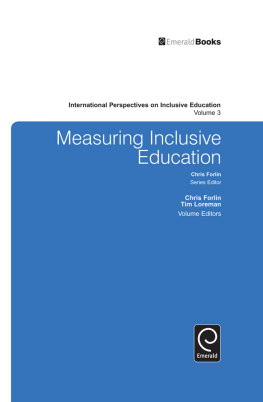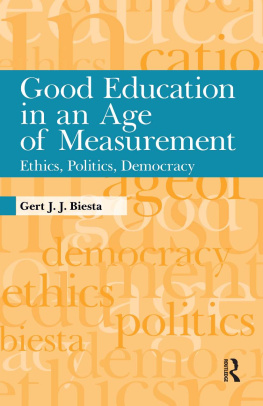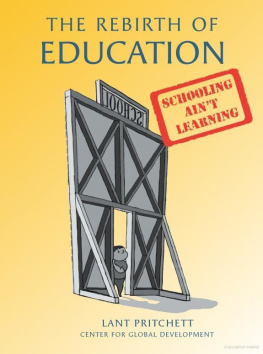The Politics of Education in Developing Countries

Great Clarendon Street, Oxford, OX2 6DP, United Kingdom
Oxford University Press is a department of the University of Oxford. It furthers the Universitys objective of excellence in research, scholarship, and education by publishing worldwide. Oxford is a registered trade mark of Oxford University Press in the UK and in certain other countries
Oxford University Press 2019
The moral rights of the authors have been asserted
First Edition published in 2019
Impression: 1
Some rights reserved. No part of this publication may be reproduced, stored in a retrieval system, or transmitted, in any form or by any means, for commercial purposes, without the prior permission in writing of Oxford University Press, or as expressly permitted by law, by licence or under terms agreed with the appropriate reprographics rights organization.

This is an open access publication, available online and distributed under the terms of a Creative Commons Attribution Non Commercial No Derivatives 4.0 International licence (CC BY-NC-ND 4.0), a copy of which is available at http://creativecommons.org/licenses/by-nc-nd/4.0/.
Enquiries concerning reproduction outside the scope of this licence should be sent to the Rights Department, Oxford University Press, at the address above
Published in the United States of America by Oxford University Press 198 Madison Avenue, New York, NY 10016, United States of America
British Library Cataloguing in Publication Data
Data available
Library of Congress Control Number: 2018961975
ISBN 9780198835684
ebook ISBN 9780192572615
Printed and bound in Great Britain by Clays Ltd, Elcograf S.p.A.
Links to third party websites are provided by Oxford in good faith and for information only. Oxford disclaims any responsibility for the materials contained in any third party website referenced in this work.
To my parents, Maureen and Brian Hickey, for helping to make the value of learning clear to me, and to so many others.
To Samer and Sophia, for all they have taught me about schooling and learning.
Preface and Acknowledgements
This manuscript brings together the findings and analysis from a project entitled The Politics of Social Provisioning that was undertaken within the Effective States and Inclusive Development Research Centre (ESID) between 2011 and 2016. ESID is based at the Global Development Institute, The University of Manchester, and consists of researchers located across the global North and South. Since 2011, its aim has been to identify the political conditions under which elites become committed to, and states become capable of, delivering inclusive development. ESID has examined the politics of development across several different policy domains, including growth, natural resource governance, social protection, gender equity, urban governance and health, as well as the topic of education that we focus on here (www.effective-states.org).
Undertaking comparative research and publishing the results in an edited collection relies heavily on a great deal of teamwork and goodwill, and we have been fortunate to find these qualities in abundance amongst the colleagues we have worked with on this study. As editors, our first and foremost round of thanks goes to the stellar cast of researchers and authors who contributed such fascinating country case studies to the collection. From the initial meetings in Buxton and Manchester, where the ideas were set in place, through the research design workshop in Nairobi and sharing of initial drafts in Cape Town, the research team has been a pleasure to work with.
In addition to the chapters produced by the ESID-education research team, we are delighted to include chapters from two leading authorities in the field, namely Merilee Grindle and Lant Pritchett, both of Harvard University. Our decision to engage with the learning crisis as a critical problem facing countries in the global South owed much to Lants ground-breaking work on this topic, whilst our decision to do so from a political perspective that focused on the critical role of coalitions owed a great deal to Merilees landmark (2004) text on the politics of educational reform in Latin America. We were grateful and honoured when both agreed to contribute critical commentaries to help close the book by identifying what the collection contributes, what it misses and where work on the politics of the learning crisis should move to next. Our thanks to them both for taking on this challenge and delivering in such style.
We have accumulated many other debts along the way, and are particularly grateful to the ESID research associates who have provided outstanding support at different stages of the project. Early on, Sophie King produced an excellent literature review on the politics of education that saved us priceless time and identified the gaps in the field to take aim at. Towards the end, David Jackman helped us to convert the last of the extensive working papers into much shorter and sharper book chapters, ensuring integration between the chapters, liaising with the publishers, and the many other time-consuming tasks required to bring a book project through to completion. So swift and incisive was his grasp of our material that he joined us as co-author for the closing chapter, much improving the product in the process.
The ideas within this book have been sharpened by many fruitful intellectual exchanges along the way, at seminars, conferences, and workshops. These include seminars at the School of Advanced International Studies at Johns Hopkins University and the World Bank in Washington DC, at the German Development Institute in Bonn, and at academic conferences in Bath, Oxford, San Diego, and Barcelona, all of which encouraged us to take this work forward and think harder about how to frame the findings. Our thanks go to the many anonymous reviewers who gave their time to offer peer review comments on our early working papers, and in particular to Professor Leon Tikly of Bristol University who offered insightful comments on early versions of all of the country papers. Samer Al-Samarrai provided valuable insights into the policy debates about the learning crisis, and on indicators and data sources.
The ESID network has provided many opportunities for this work to be pored over, critiqued and sharpened, and we thank our colleagues for their critical comments and encouragement, including Kunal Sen, David Hulme, Pablo Yanguas, Sohela Nazneen, Abdul-Gafaru Abdulai, Badru Bukenya, and Fred Golooba-Mutebi. The initial framing of the project flowed directly from the (2013) ESID Working Paper on Researching the Politics of Social Provisioning produced by Brian Levy and Mike Walton, to whom we owe a significant intellectual debt. We have also benefitted from the guidance of the Centres Advisory Group, including David Booth, Barbara Harriss-White, Duncan Green, Margaret Kakande and Peter Evans (at Brown University) as well as Peter Evans (at the Research Department in DFID). Our thanks to these esteemed colleagues and to those who also acted as critical discussants and participants at our various workshops, including Nic van de Walle, Heather Marquette, Anu Joshi, and Merilee Grindle. An initial discussion with Steve Kosack at Harvard in 2011, just before his own excellent book on the politics of education was published, helped to orientate the project in the very early stages.

